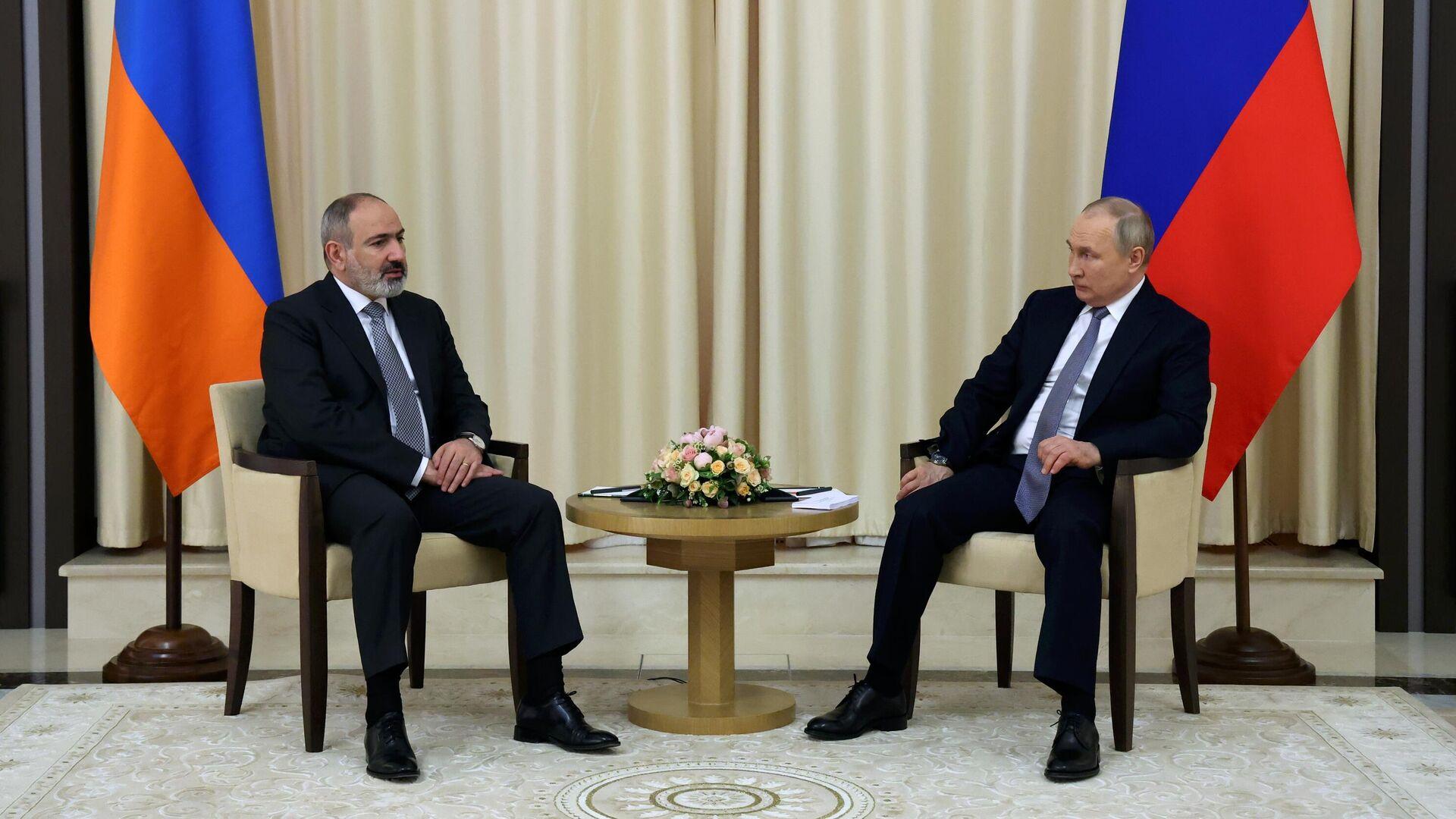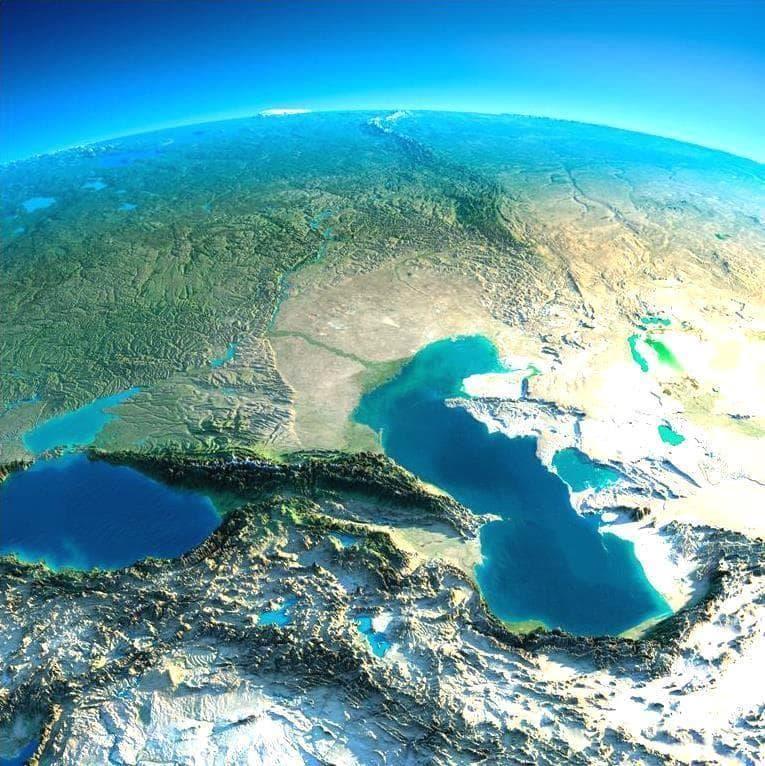“Attempt to rearm Armenian Armed Forces may create illusion of revenge among Armenians” Dmitriy Babich for Caliber.Az
Caliber.Az interview with Russian political analyst, columnist at “InoSMI”, Dmitriy Babich.
- Recently, some media reported that Russia had stopped supplying weapons to Armenia. What do you think, was the rearmament of the Armenian army on the agenda of the meeting between Putin and Pashinyan in Moscow on April 19?
- I think that the issue of the rearmament of Armenia was not raised during the meeting between Russian President Vladimir Putin and Armenian Prime Minister Nikol Pashinyan; however, this is a very dangerous topic. Everyone understands that the Azerbaijani army is armed much better than the Armenian military, and under these conditions, an attempt to rearm the Armenian Armed Forces is very dangerous, since it can trigger a temptation for the Armenian side, a false impression that revenge is possible. I mean, it's like extinguishing a fire with kerosene. Inspiring people that they can replay a lost game is wrong.
In general, it is necessary to remember where all the conflicts in the post-Soviet space emanated from. When the unified governance of the Soviet Union began to collapse, the nationalists, especially the Armenians, got the impression that the mountains were moving, the situation was changing, and they must, as soon as possible, take advantage of the situation, they need to model a new state for themselves, because such a chance will never be back. And in such cases, they resort to all kinds of adventures which have a common name – war. One would really like to avoid this.

- What is your overall assessment of the last meeting between Vladimir Putin and Nikol Pashinyan in Moscow?
- More than 20 years of negotiations have shown that this is all an illusion. We remember the meetings of Heydar Aliyev with the ex-president of Armenia Robert Kocharyan, the series of meetings of Ilham Aliyev with Nikol Pashinyan and other leaders of Armenia, but in the end the situation was resolved on the battlefield. It is convinced that war is not a means of solving problems in the 21st century, but when the state faces the vulgar nationalism of the 17th century, as in the case of Armenia, then there are no other ways left.
Unfortunately, the compromise diplomatic method does not work in these cases. We all see what is happening in Armenia. Rallies against Pashinyan. Some 11,000 people took to the streets, which is not a small number for Armenia. Pay attention to the proposals put forward there - to stop the unblocking of transport corridors, since this allegedly violates the sovereignty of Armenia. This means that the entire region must stand still, roads and pipelines must stand idle, but the sovereignty of Armenia will be respected. This contradicts any logic: economic, humanitarian, geopolitical, nevertheless, these calls are heard in Armenia. Everyone understands that Pashinyan is not able to fully control these nationalist groups in his country. I think that even the fact that he remained in power is not evidence of democracy, but rather evidence of the great dependence of Armenia on the Western world. It is obvious that the West is betting on Pashinyan. And the fact that Pashinyan, who lost the war, wins the elections, speaks just about this. But under the current circumstances, when the West takes a pro-Armenian position, we will see even many similar miracles.
In any case, it is good that the President of Azerbaijan goes for negotiations. Doing so, he demonstrates that he has the patience and desire to resolve issues peacefully, in line with the spirit of the 21st century.
- Is there a competition between the Brussels and Russian platforms?
- I can't say that this competition is palpable for Russia. At the same time, the statements of the EU that Russia should not be allowed to involve in the Karabakh resolution are not uncommon. However, let's look at the situation impartially: since 1992, since the collapse of the USSR, has the EU settled at least one conflict? No, none. The EU has only exacerbated them with its intervention. In Syria, after the intervention of the EU, the conflict only intensified, and the Balkans are still smoldering. I would prefer to keep quiet about the invasion of the collective West into Iraq and Afghanistan, there is a complete disaster.
This is not because the French or the British are dumber, but because the dominant ideology in Europe, which allows EU members to speak down to countries such as Russia, Azerbaijan, Turkey, is useless at all. As an example, we can recall the 2015 European Games, which were held in Baku. Many of the invited European leaders did not come, although these were European games, the Western media published boorish articles regarding Azerbaijan. In addition, the articles themselves contained, to put it mildly, a stupid news story.
I would only be glad if the EU helped resolve the Armenian-Azerbaijani issue, which in fact hinders Russia as well. Due to the unresolved issue, the transport corridors of the South Caucasus remain closed, which are necessary not only for Azerbaijan, Turkey, Georgia, but also for Russia. But the EU cannot solve this problem. I don't believe in its ability.

Europeans are immersed in their arrogance and hypocrisy. We all hate war, but it is foolish to deny that even today war is in some cases able to solve political problems. Azerbaijan has been negotiating over Karabakh for 26 years, while Russia has been waiting for Ukraine to implement the Minsk agreements for 8 years. But there comes a moment when war becomes inevitable, and the responsibility for it lies with the one who has previously blocked all options for a diplomatic solution to the issue. Namely, this situation has developed in the fall of 2020 in Karabakh and at the end of winter 2022 in the Donbass.
- Can Armenia join the Union State of Russia and Belarus?
- Armenia will not join the Union State of Russia and Belarus. This state formation is now going through a difficult period in its history. The events in Belarus in August 2020 - early 2021, as well as the still unfinished military operation of Russia in Ukraine, launched on February 24, 2022, inflicted a blow on its image. A huge part of the public opinion in Armenia today perceives Russia as a "toxic" country. I don’t think this is fair, the situation will definitely change in the future, but for now the reality is just that.








